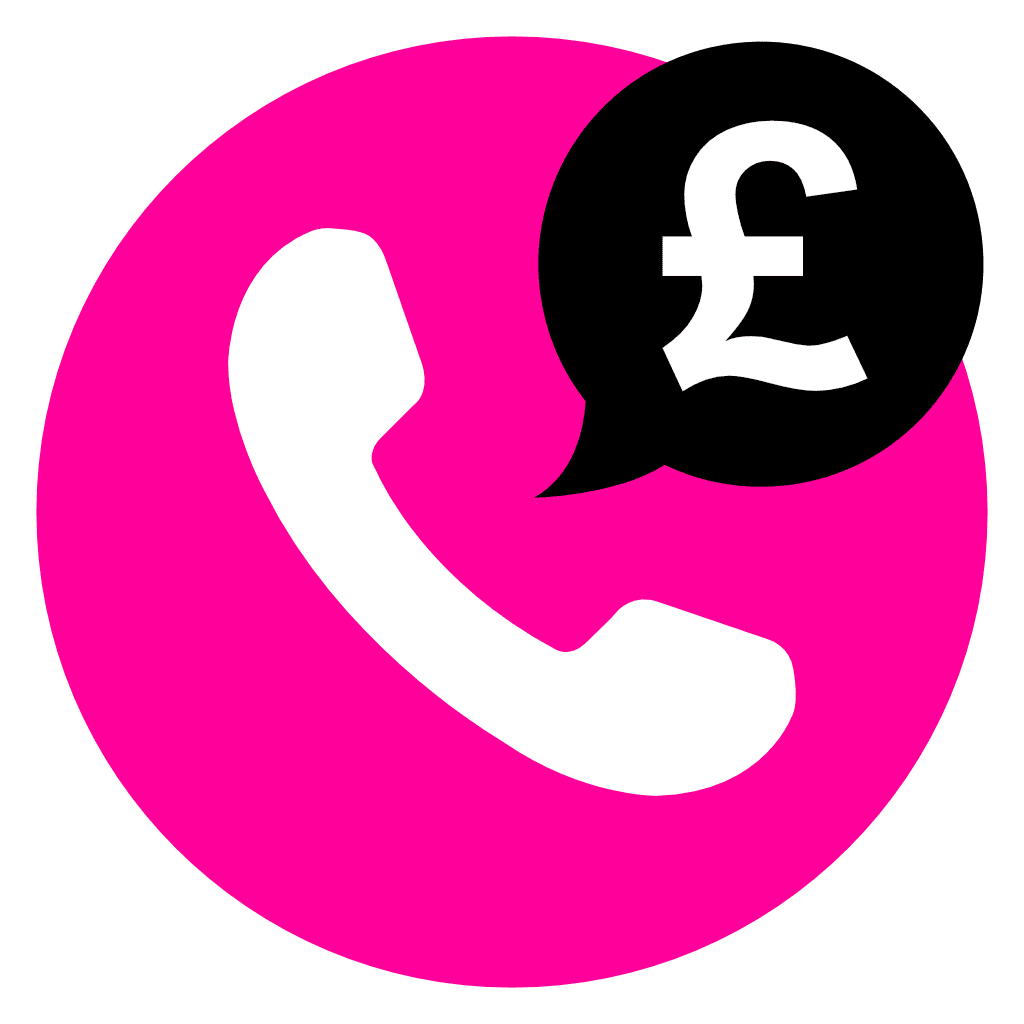Vonage and Dialpad are two leading names in the cloud communication space, offering comprehensive VoIP and Unified Communications as a Service (UCaaS) solutions. Both cater to businesses of various sizes, but their feature sets, pricing, and overall value proposition differ in ways that could sway your decision based on specific business needs. This analysis provides a detailed comparison of Vonage vs Dialpad, with a focus on features, costs, and which platform might best suit your business.
Overview of Vonage vs Dialpad
Vonage
Vonage, a well-established player in the VoIP industry, has evolved to offer a wide range of communication and collaboration tools aimed at businesses. It is particularly strong in cloud-based telephony, offering scalable solutions for small to large enterprises. Its business offering, Vonage Business Communications (VBC), integrates calling, messaging, conferencing, and other features needed for modern communication.
Dialpad
Dialpad is a younger, innovative contender in the communication space, with a focus on AI-driven features and a unified approach to communication. It is known for its cloud-based communication solutions that cover business phone systems, video conferencing, and messaging. Dialpad’s AI-powered transcription, analytics, and voice intelligence tools make it a popular choice for businesses looking for smarter communication systems.
Feature comparison
Core features
| Feature | Vonage | Dialpad |
|---|---|---|
| VoIP Calling | Reliable cloud-based VoIP calling with advanced call routing and call handling features | Offers cloud-based VoIP calling with AI-powered voice intelligence to improve call quality and user experience |
| Unified Communications | Vonage Business Communications offers voice, video, messaging, and conferencing in one platform | Unified Communications platform integrating voice, video, messaging, and meetings with AI-driven insights |
| AI-powered Features | Limited AI tools (such as smart call routing) | Strong AI features including live transcription, sentiment analysis, and voice intelligence |
| Collaboration Tools | Basic collaboration features like team messaging and video conferencing | Strong emphasis on collaboration with seamless integrations for messaging, video conferencing, and file sharing |
| CRM Integration | Supports more than 20 CRM systems, including Salesforce, HubSpot, and Zoho | Native integrations with CRMs like Salesforce, HubSpot, and Google Workspace, with custom integrations possible |
| Mobile App | Mobile app with the ability to make/receive calls, messages, and participate in meetings | Feature-rich mobile app with voice, messaging, video, and real-time transcription capabilities |
| Video Conferencing | Supports up to 100 participants, with basic conferencing features | Dialpad Meetings allows up to 150 participants, with customisation options and AI-driven meeting summaries |
| Contact Centre Support | Vonage Contact Center integrates with CRMs to manage customer communications | Dialpad offers a full-featured Contact Centre solution with AI-driven analytics and customer sentiment tracking |
Advanced features comparison
AI-powered functionality
While both platforms offer cloud-based business phone systems, Dialpad stands out for its use of artificial intelligence. Dialpad’s AI-powered transcription can automatically convert voice conversations into text, offering live transcriptions during calls and meetings. This feature also provides insights into customer sentiment, enabling businesses to improve customer service and sales strategies.
Vonage, on the other hand, has more limited AI capabilities. Its smart call routing feature helps direct calls to the appropriate agent, but it does not match Dialpad’s level of sophistication in terms of real-time AI assistance.
Integrations and customisation
Vonage integrates with a wide range of business software, including over 20 CRM systems and other enterprise tools. The platform supports custom API integrations, making it flexible for businesses with unique requirements.
Dialpad also excels in integration, particularly with Google Workspace and Microsoft 365. It allows businesses to sync data seamlessly across platforms, enabling real-time collaboration. Dialpad also provides an open API for custom integrations.
Mobile usability
Both Vonage and Dialpad offer mobile apps, but Dialpad’s app has the edge thanks to its real-time transcription and voice intelligence features. Vonage’s app allows users to make and receive calls, send messages, and join meetings, but it lacks the advanced AI capabilities that make Dialpad’s app a more robust solution for on-the-go workers.
Vonage vs Dialpad pricing comparison
Vonage pricing
Vonage Business Communications offers three pricing tiers:
- Mobile Plan: Starts at £9 per user per month, ideal for small businesses with basic needs. Includes unlimited calls and SMS within the UK and Europe, along with mobile and desktop apps.
- Premium Plan: Priced at £15 per user per month, the Premium plan includes advanced calling features, integration with CRMs, video conferencing for up to 100 participants, and team messaging.
- Advanced Plan: Starts at £25 per user per month, offering more extensive features like call recording, visual voicemail, and on-demand contact centre functionality.
Dialpad pricing
Dialpad offers three main pricing tiers:
- Standard Plan: Starts at £12 per user per month, covering unlimited calling within the UK and US, AI-powered call transcription, and integration with Microsoft 365 and Google Workspace.
- Pro Plan: Priced at £20 per user per month, includes additional features like CRM integrations, 24/7 support, and more extensive analytics.
- Enterprise Plan: Custom pricing, aimed at large organisations with complex needs, including advanced analytics, custom SLAs, and dedicated account management.
Pros and cons
Vonage
Pros:
- Scalable for businesses of all sizes
- Strong integration capabilities, especially with CRM platforms
- Affordable entry-level pricing
- Reliable VoIP services with a robust feature set
Cons:
- Lacks AI-driven insights and advanced transcription
- Fewer collaboration features compared to competitors like Dialpad
- Higher tiers can be expensive for smaller businesses
Dialpad
Pros:
- AI-powered features such as live transcription and sentiment analysis
- Strong collaboration tools with seamless video, messaging, and voice integration
- Easy to use, mobile-friendly platform
- Excellent integration with Google Workspace and Microsoft 365
Cons:
- Slightly higher starting price for basic plans compared to Vonage
- Limited international calling options compared to Vonage
- Enterprise-level pricing can be steep for smaller businesses
Which one should you choose?
The choice between Vonage vs Dialpad ultimately depends on the specific needs of your business.
- Vonage is an excellent option for businesses that prioritise robust VoIP services, strong CRM integrations, and scalability at affordable rates. Its entry-level plans are budget-friendly, making it appealing for smaller businesses, while its more advanced plans cater to larger enterprises with more complex needs.
- Dialpad, however, is a better fit for businesses looking to leverage AI-driven communication tools and real-time collaboration. Its AI-powered call transcription, sentiment analysis, and smart meeting summaries provide a modern, intuitive solution for businesses looking to optimise efficiency and improve customer interactions.
For businesses that require a straightforward, reliable VoIP service with a focus on traditional telephony, Vonage might be the better choice. However, if AI-driven communication and collaboration are key to your business strategy, Dialpad could offer more value.
FAQ
Vonage focuses on robust VoIP and CRM integrations, offering traditional telephony solutions. Dialpad, however, stands out with AI-powered features like live call transcription and sentiment analysis, alongside its unified communications platform that integrates voice, messaging, and video seamlessly.
Dialpad is stronger in AI-driven tools, featuring real-time call transcription, sentiment analysis, and smart meeting summaries. Vonage lacks similar AI capabilities, focusing more on traditional telephony and call routing, making Dialpad the choice for businesses prioritising AI insights.
Dialpad offers superior video conferencing with AI-driven meeting summaries and support for up to 150 participants. Vonage supports video conferencing for up to 100 participants but lacks the AI customisation that Dialpad provides for more seamless and interactive meetings.
Vonage has a more affordable entry-level plan, starting at £9 per user per month. Dialpad’s basic plan starts at £12 per user per month but includes AI-driven features, making it a better value for businesses seeking advanced communication tools.
Dialpad’s mobile app is more advanced, offering real-time transcription, AI tools, and seamless integration with other communication channels. Vonage also offers a mobile app with calling and messaging, but it lacks the advanced AI capabilities that Dialpad provides.
Both Vonage and Dialpad offer strong CRM integrations, supporting platforms like Salesforce and HubSpot. However, Vonage integrates with over 20 CRM systems, while Dialpad focuses more on integrations with Google Workspace and Microsoft 365, offering custom API options for tailored solutions.
Vonage provides excellent scalability, with plans suited for small businesses and large enterprises. Its advanced plans offer robust features like contact centre support. Dialpad also scales well, but its AI-driven focus might be more beneficial for businesses seeking advanced analytics and smarter communication tools.
Both Vonage and Dialpad offer reliable customer support, with Vonage providing phone and online support across all plans. Dialpad offers 24/7 support starting from its Pro plan, along with self-service tools. Larger enterprises may find Dialpad’s dedicated account management in the Enterprise plan more suitable.
Dialpad excels in AI-driven customer service with its real-time call transcription, sentiment analysis, and analytics. Vonage offers basic customer service tools but lacks the advanced AI-driven insights that Dialpad provides, making Dialpad the better choice for improving customer interactions.
Vonage offers more extensive international calling options, including unlimited calls to specific regions like Europe. Dialpad’s international calling is more limited, with fewer options for global businesses, making Vonage a stronger choice for companies needing extensive international coverage.

